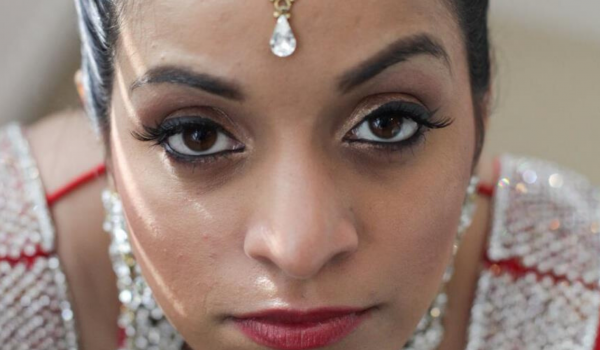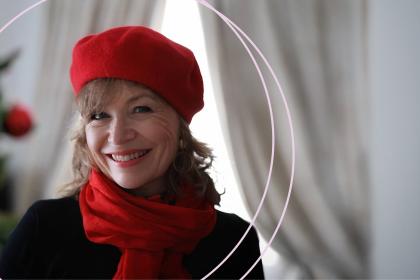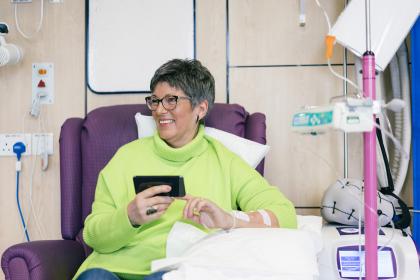Like many younger women dealing with an ovarian cancer diagnosis, Sunita had to balance her health needs with her desire to one day start a family. Here she talks about fertility, creative distractions, and why it can be hard to talk to her family…
I was only 33 when I was diagnosed with ovarian cancer. Looking back now everything seemed to happen almost overnight. I got bloated very fast and I ended up being taken to A&E by my husband. At that time they didn't mention ovarian cancer, but I was scheduled for surgery to remove a cyst, one of my ovaries and my appendix. It was only later when they tested the cells, that they told me I had endometrioid ovarian cancer, stage IC.
Fertility
The doctors wanted me to have a full hysterectomy to reduce the risk of the cancer spreading, but I fought against this because having children was really important to me. Instead we agreed that I would be monitored with regular tests and ultrasound scans. This was good news for me as I was keen to begin trying for a family.
When things had begun to settle down my husband and I decided to undergo fertility treatment. I started injections to stimulate my remaining ovary, and we were able to harvest some eggs. Unfortunately my ovary then developed a cyst, which had to be removed. That's when they discovered more cancerous cells. I was devastated. Finding out that the cancer had come back was so difficult.
I've now had my second ovary removed. It was a really difficult decision; I knew that if I kept delaying the surgery I could be less likely to survive for longer, but my fertility was really important to me. I also didn't want to lose my periods because for me they're an important part of my identity. As a younger woman it's been so hard – no one wants to have a hysterectomy, but once you've completed your family it's a less complicated decision to make. Thankfully I was able to keep my womb, so I can still carry my own children.
Chemotherapy and coronavirus
I started a second round of chemotherapy earlier this year, and after the first session I felt exhausted and like I couldn't breathe. I thought it was because of the chemotherapy, but the doctors told me that I had tested positive for coronavirus. I was in shock. I felt like it was never going to end; I just didn't want to go into hospital anymore. My husband and I both had to quarantine but thankfully I didn't take too long to recover. I feel very lucky – it could have been a lot worse.
I have struggled with the chemotherapy; sometimes I feel down or like I can't do things. I've now lost my hair, which I've found really hard. Sometimes I'm in the shower and I'll start to cry thinking "where’s my hair?". I’ve found it really helpful to keep a routine. My husband has been shielding with me, which makes a big difference; just to have someone around makes it feel more normal. My dog has been amazing too.
Creative outlet
Coming from a south Asian family, it can be difficult to talk about these personal things with my family – it's private, it's gynaecological. My family love me and really want to help, but certain things are taboo. It can be hard to show your emotions to the ones you love the most, but I am lucky that I can share things with my husband.
I feel it's important to talk about cancer rather than shy away from it, so that's what I’ve decided to do. Writing has been a way for me to cope – raising awareness and sharing my story really empowers me. I've recently published some of my poems and I write about all aspects of my illness. It helps me express how I feel about my ovarian cancer. It's a real creative outlet for me. I want to dedicate my next book to the hospital and everyone who took care of me.
When I was diagnosed, I felt like my world had fallen apart. I'd like to tell people that if they're finding it hard to cope – seek some therapy, find a support group or do something creative. I also find it helpful to do meditation, read self-help books and speak to my therapist. I just try to take each day one at a time.
If you’ve been affected by this story and would like to speak to a specialist nurse, you can call our dedicated support line on 020 7923 5475 or contact us: [email protected]. We're open from 9am until 5.30pm, Monday to Friday.





